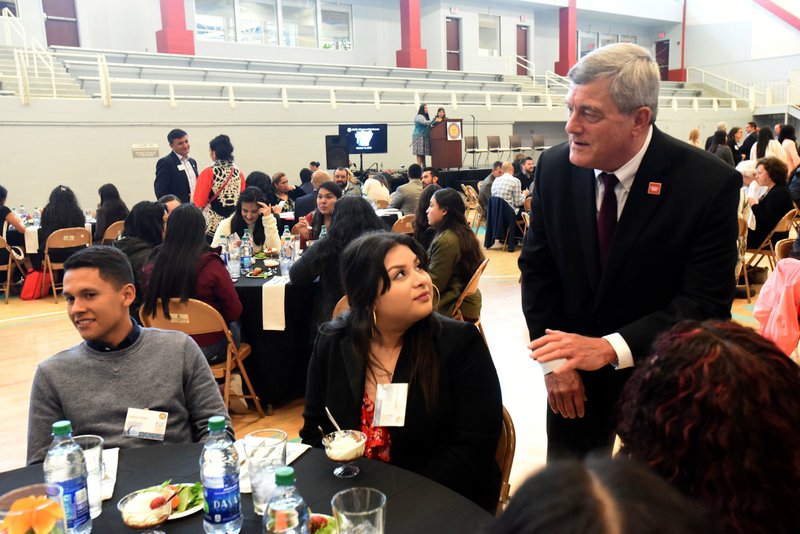FAYETTEVILLE -- Getting a full, accurate count of Northwest Arkansas' population will require much more than a public awareness campaign, community organizers told a forum organized by the League of Women Voters of Washington County.
Getting such a full count is vital to the region in particular because of the growth in general and the type of growth in particular, said forum host Laura Kellams of Fayetteville. Much of the growth is from populations tending to not respond to requests for a full response from the U.S. Census Bureau, she said -- minorities, immigrants, families with small children, people who distrust the government, people without internet access at home and so forth.
Katheryn Birkhead, chairwoman of the Springdale Complete Count Committee, emphatically agreed: "You can go down that list and say, Springdale -- check, check, check."
The federal government does a census every 10 years. The next one is due next year. Those figures are used in determining U.S. House and state legislative districts. They also directly affect how much of a share of federal taxpayer money for various programs are received by states and cities.
Planned, dedicated efforts to get more residents to fill out census forms will include getting families to get at least 20 of their relatives to complete their forms and convincing people to sign up as temporary employees of the U.S. Census Bureau, said Mireya Reith of Fayetteville, founder of immigrant advocacy group Arkansas United, and Melisa Laelan, director of the Arkansas Coalition of Marshallese. Birkhead, Reith and Laelan made up the panel at the forum, which began at 6 p.m. at the Fayetteville Public Library. At least 20 attended.
"This is going to take more than a light touch," Reith said. Alarmed by federal efforts to put a citizenship question on the census, which tends to make noncitizens but legal residents wary of answering the forms according to the U.S. Census Bureau itself, pro-immigrant organizations such as hers intensified their efforts to get people counted, she said. The U.S. Supreme Court ultimately blocked the addition of the question. The current administration's intent to add it, though, raised concerns, she said.
Efforts for a complete count get both public and private support. Public support comes from the governor on down, they said. Mayors in particular are "deadly afraid our communities will not show up," Reith said of immigrants, Marshallese and others. Tyson Foods provided grant money to help efforts and is providing work spaces in 13 of the company's plants to help sign people up, she said, and other businesses are considering similar efforts. Churches are heavily involved in census signing efforts, Laelan agreed.
Northwest Arkansas was 96% white in 1990, census figures show. By 2022, that figure is expected to fall below 70%, Kellams said. As of 2017, she said, census figures showed 39% of children in Northwest Arkansas were nonwhite, while 94% of people 65 and older were white.
After years of asking, Marshallese will be a separate ethnic category on census forms for the first time, Laelan said. The forms will also be much simpler, with only 10 questions, panel members said. The forms will also be available by mail, by internet or by calling in on the telephone, panel members said.
Mailed forms will go out and hopefully be filled out by most households by April 1, according to the Census Bureau's schedule. After that, census takers will knock on doors. The finished figures are due for presentation to the president by the end of the year. States will received detailed information by March 2021 so they can redraw congressional districts. In Arkansas, legislative districts are drawn by a state board of apportionment consisting of the governor, the attorney general and the secretary of state.
NW News on 11/20/2019

